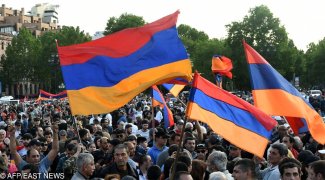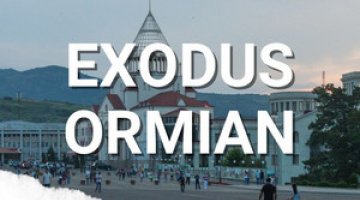Early elections in Armenia: Pashinyan’s gambit

On 1 November, the President of Armenia, Armen Sargsyan, signed a decree on dissolving parliament. The new elections to the National Assembly will take place on 9 December. In accordance with the constitution, the parliament was terminated after deputies failed for the second time to choose a candidate for prime minister. The only person seeking the office was the current head of government, Nikol Pashinyan. Of the 105 deputies sitting in parliament, 11 abstained, while the others did not vote. In addition, on 29 October a vote was held on changes to the electoral law forced through by Pashinyan, which called for its standardisation (into a fully proportional system rather than a mixed ordinance) and the lowering of the electoral thresholds, from 5% to 4% for parties and from 7% to 6% for a coalitions. However, these draft amendments did not receive the required two-thirds majority to pass.
Commentary
- The announcement of new elections in Armenia ends a parliamentary dispute which had lasted for three weeks. Prime Minister Pashinyan, who came to power as a result of mass public protests in late April and early May, had been unable to exercise government effectively. His parliamentary bloc Yelk (Exit) has just 9 seats in the 105-seat Chamber of Deputies, as well as the support of 8 independent deputies. The functioning of the cabinet was therefore dependent on cooperation with other parties: Prosperous Armenia, run by the oligarch Gagik Tsarukyan (31 seats), and the nationalist Dashnaktsutyun (7 seats). Both of these parties had been trying to prevent new elections from being held, and to this end they cooperated with the Republican Party of Armenia, led by the former president Serzh Sargsyan. This situation led to a stalemate: Pashinyan wielded power thanks to his mandate from the massive support of the crowds of protesters, while the Republicans with their 50 deputies could not form a government because it would have been fatally undermined in the eyes of the general public.
- The dissolution of parliament and the holding of elections represent a short-term success for Pashinyan, who is seeking to build up an effective political base. However, he can only achieve this by discounting the support of the masses of protesters who brought him to power. The prime minister has been trying to get elections held before the end of this year since he came to power on 8 May, stressing that the parliament’s current composition does not reflect the political mood. He wanted to take advantage of the revolutionary fervour in society, which is likely to burn out in the coming months (winter in Armenia is a difficult period, for many reasons including power cuts).
- Despite the popularity of Pashinyan and his ability to mobilise the masses, the outcome of the elections remains unclear. He labours under the disadvantage of the organisational weakness of his political bloc and its lack of local structures. The Republicans, in addition to having such structures, also have financial resources and administrative tools at their disposal; they also wield great influence in the form of patronage among local businessmen. Both they and Tsarukyan would prefer to maintain the current electoral system, under which part of the parliament will be elected by a majority ordinance. The early elections will thus either result in Pashinyan confirming his social mandate or the Republicans depriving him of it.




